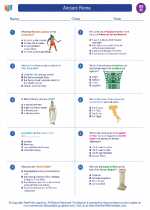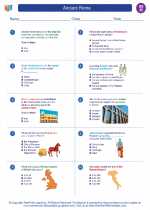Arctic Ocean
The Arctic Ocean is the smallest and shallowest of the world's five major oceans. It is located mostly in the Arctic north polar region and is almost completely surrounded by Eurasia and North America. The ocean's area is about 14.06 million square kilometers (5.43 million square miles).
Characteristics of the Arctic Ocean
- Surface Area: 14.06 million square kilometers
- Shoreline: Approximately 45,390 kilometers (28,200 miles)
- Maximum Depth: 5,450 meters (17,880 feet)
- Sea Ice: The Arctic Ocean is covered by sea ice for much of the year, which is vital for the survival of many animal species.
Wildlife in the Arctic Ocean
The Arctic Ocean is home to a diverse range of wildlife, including polar bears, walruses, seals, whales, and a variety of seabirds. The region's unique ecosystem is adapted to the extreme cold and ice-covered environment.
Environmental Concerns
Climate change is having a significant impact on the Arctic Ocean, leading to the melting of sea ice and changes in the region's ecosystems. This has raised concerns about the future of Arctic wildlife and the potential for increased human activity in the area.
Human Activity
The Arctic Ocean is an important area for fishing, transportation, and natural resource extraction, including oil and gas. As the region's ice cover diminishes, there is growing interest in the development of shipping routes and resource exploration in the Arctic.
Conclusion
The Arctic Ocean is a unique and important part of the Earth's marine environment. Its fragile ecosystem is facing challenges due to climate change and increased human activity, making it a critical area for conservation efforts and international cooperation.
.◂Social Studies Worksheets and Study Guides Eighth Grade. Ancient Rome

 Worksheet/Answer key
Worksheet/Answer key
 Worksheet/Answer key
Worksheet/Answer key
 Worksheet/Answer key
Worksheet/Answer key
